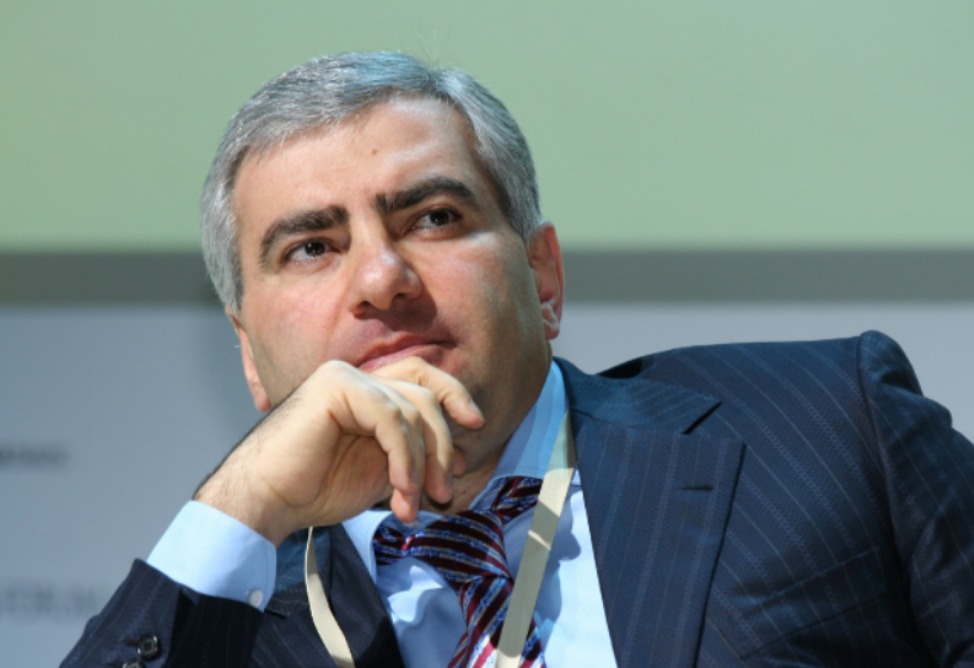No progress should be expected from possible meeting of Armenian, Azeri presidents in Paris
29.06.2016,
17:46
A possible meeting of Armenian and Azerbaijani presidents in Paris would become another round of "talks for the sake of talks," Sergey Minasyan, a political analyst from the Yerevan-based Caucasus Institute said today.

YEREVAN, June 29. /ARKA/. A possible meeting of Armenian and Azerbaijani presidents in Paris would become another round of "talks for the sake of talks," Sergey Minasyan, a political analyst from the Yerevan-based Caucasus Institute said today.
Speaking at a news conference Minasyan said the OSCE Minsk Group co-chairs will continue their efforts to exclude a repetition of an unprecedented upsurge in violence in the Nagorno-Karabakh conflict zone in early April.
“On the other hand it is clear that Azerbaijan is trying to get the most out of the inertia triggered by the escalation of tension along the line of contact in April, but I do not think there will be some significant processes. Therefore, what might happen in Paris would have a more modest result than what happened in Vienna and St. Petersburg,' Minasyan said.
During the May 16 meeting in Vienna, Austria, the presidents of Armenia and Azerbaijan agreed to work out safeguards against ceasefire violations around Nagorno-Karabakh and resume their search for a compromise peace deal to end the Nagorno-Karabakh conflict.
After the June 20 meeting in St. Petersburg, the presidents of Armenia and Azerbaijan agreed to increase the number of international observers in the Karabakh conflict zone and noted the achievement of mutual understanding on a number of issues that will create conditions for progress in the Nagorno-Karabakh conflict settlement process.
According to Minasyan, even if before the meeting in Paris, the number of OSCE observers on the contact line would be increased, as agreed in St. Petersburg, it would be little progress.
"Azerbaijani president Ilham Aliyev should have to make a decision expected by his own people and the world –either to admit that after the April hostilities no change in the status quo did happen and get the eternal ‘talks for the sake of talks or try to commit another aggression against Karabakh,’ he said.
Minasyan said that the two sides are far from making progress based on the so-called compromise.
"Compromise seems unattainable, and in Paris the presidents would probably talk about establishing mechanisms of trust along the line of contact, but it can not be linked to progress in the negotiation process. The reality remains the same - the parties are either not prepared or cautious about resumption of an all-out war,’ he said.
The Nagorno-Karabakh conflict erupted into armed clashes after the collapse of the Soviet Union in the early 1990s as the predominantly Armenian-populated enclave of Azerbaijan sought to secede from Azerbaijan and declared its independence backed by a successful referendum.
On May 12, 1994, the Bishkek cease-fire agreement put an end to the military operations. A truce was brokered by Russia in 1994, although no permanent peace agreement has been signed. Since then, Nagorno-Karabakh and several adjacent regions have been under the control of Armenian forces of Karabakh.
Nagorno-Karabakh is the longest-running post-Soviet era conflict and has continued to simmer despite the relative peace of the past two decades, with snipers causing tens of deaths a year.
On April 2, 2016, Azerbaijan launched military assaults along the entire perimeter of its contact line with Nagorno-Karabakh. Four days later a cease-fire was reached. ---0---
Speaking at a news conference Minasyan said the OSCE Minsk Group co-chairs will continue their efforts to exclude a repetition of an unprecedented upsurge in violence in the Nagorno-Karabakh conflict zone in early April.
“On the other hand it is clear that Azerbaijan is trying to get the most out of the inertia triggered by the escalation of tension along the line of contact in April, but I do not think there will be some significant processes. Therefore, what might happen in Paris would have a more modest result than what happened in Vienna and St. Petersburg,' Minasyan said.
During the May 16 meeting in Vienna, Austria, the presidents of Armenia and Azerbaijan agreed to work out safeguards against ceasefire violations around Nagorno-Karabakh and resume their search for a compromise peace deal to end the Nagorno-Karabakh conflict.
After the June 20 meeting in St. Petersburg, the presidents of Armenia and Azerbaijan agreed to increase the number of international observers in the Karabakh conflict zone and noted the achievement of mutual understanding on a number of issues that will create conditions for progress in the Nagorno-Karabakh conflict settlement process.
According to Minasyan, even if before the meeting in Paris, the number of OSCE observers on the contact line would be increased, as agreed in St. Petersburg, it would be little progress.
"Azerbaijani president Ilham Aliyev should have to make a decision expected by his own people and the world –either to admit that after the April hostilities no change in the status quo did happen and get the eternal ‘talks for the sake of talks or try to commit another aggression against Karabakh,’ he said.
Minasyan said that the two sides are far from making progress based on the so-called compromise.
"Compromise seems unattainable, and in Paris the presidents would probably talk about establishing mechanisms of trust along the line of contact, but it can not be linked to progress in the negotiation process. The reality remains the same - the parties are either not prepared or cautious about resumption of an all-out war,’ he said.
The Nagorno-Karabakh conflict erupted into armed clashes after the collapse of the Soviet Union in the early 1990s as the predominantly Armenian-populated enclave of Azerbaijan sought to secede from Azerbaijan and declared its independence backed by a successful referendum.
On May 12, 1994, the Bishkek cease-fire agreement put an end to the military operations. A truce was brokered by Russia in 1994, although no permanent peace agreement has been signed. Since then, Nagorno-Karabakh and several adjacent regions have been under the control of Armenian forces of Karabakh.
Nagorno-Karabakh is the longest-running post-Soviet era conflict and has continued to simmer despite the relative peace of the past two decades, with snipers causing tens of deaths a year.
On April 2, 2016, Azerbaijan launched military assaults along the entire perimeter of its contact line with Nagorno-Karabakh. Four days later a cease-fire was reached. ---0---



